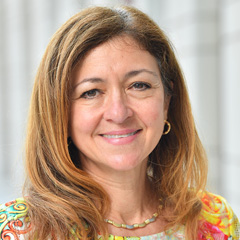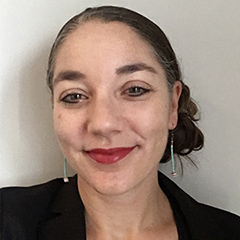Criminal Defense
Take a hard look at how the American criminal adjudicative system really functions. Then work to improve it.
From the start of the Criminal Defense Clinic, you'll be out front representing clients accused of crimes in Manhattan Criminal Court.
Under the supervision of Fordham Law Professor Cheryl Bader and Professor Mariam Hinds, teams of students assume primary responsibility for all aspects of client representation, including establishing attorney-client relationships through interviewing and counseling, fact investigation, developing and implementing case theory, engaging in strategic decision making, drafting correspondence, motions, and other court filings, negotiating with prosecutors, and appearing on the record at all court appearances in NYC Criminal Court.
The Criminal Defense Clinic's collaboration with The Legal Aid Society’s Video Mitigation Unit, led by Nicole Mull, brings the power of video advocacy to BIPOC and low-income clients who would not otherwise be able to utilize this effective advocacy tool that clients with means employ to achieve better case resolutions. Students conduct interviews of people relevant to their client’s life experience, craft case theories, collect essential visual material, interview clients at Rikers Island, and develop cohesive and compelling narratives to produce a video that gives voice, context and a human face to our client’s narrative.
The Criminal Defense Clinic is an interdisciplinary clinic. You will work closely with law colleagues as well as social work colleagues, under the supervision of Kaela Economos, MSW and will consult with forensic psychologists—and will learn trauma-informed lawyering techniques. Your experience will be contextualized with seminar work that examines the strengths and weaknesses of a complex criminal administrative system and the role of the defense attorney.
The CDC operates on the principle that the best way to learn is within a structured and proactive environment of planning, execution and reflection. All this will take place in a supportive and reflective environment where you will learn to be your own best guide and teacher to becoming an excellent problem solver and provider of legal services.


